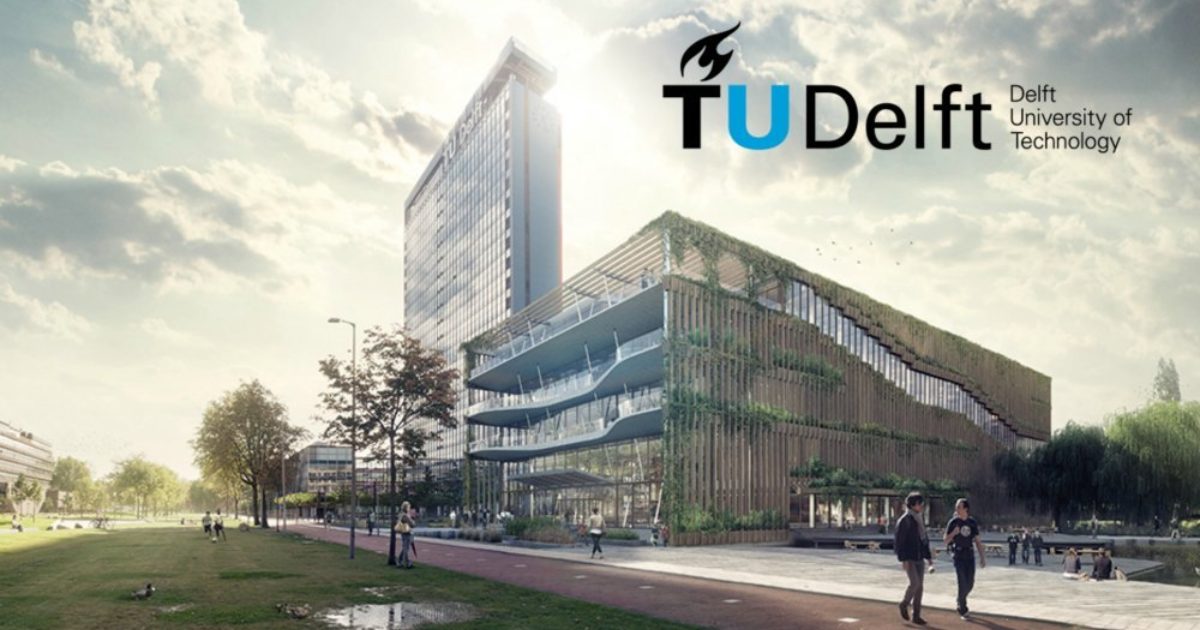TU Delft: Veni grants for nine leading TU Delft researchers
Another 78 promising young scientists receive Veni funding of up to 280,000 euros from NWO. This concerns sixty researchers from the Social Sciences and Humanities (SGW) domain and eighteen from the Applied and Technical Sciences (TTW) domain, who can further develop their own research ideas over the next three years. The Venis for the ENW and ZonMW domains were announced in December 2021.
TU Delft’s Veni laureates:
The Garden Complex
dr. ir. Bieke Cattoor, Architecture
Gardens are a major source of urban resilience: they are key in countering climate change effects and biodiversity loss, and are greatly beneficial to human health and well-being. Despite these powerful capacities, the garden complex –the sum of urban gardens– has been largely overlooked in research and planning. This is especially problematic because gardens occupy 30% of urban ground, but they risk disappearing or face critical change due to densification, environmental stress and changing lifestyles. This VENI addresses, analyses and activates the garden complex and thereby contributes to co-creating a more sustainable, liveable and resilient urban future.
Mattering Minds: Understanding the Ethical Lives of Technologically Embedded Beings with 4E
dr. Janna van Grunsven, TPM
That technology plays an important role in how we live our ethical lives is increasingly recognized by philosophers and engineers alike. That said, little attention has been paid to how technology shapes our experience of the expressive bodily lives of others as beings who matter. Using insights from the fast-growing field of 4E cognitive science, this research shows that we are hereby ignoring an important dimension of ethical life that, when understood, can provide new normative insights for technology development.
Read more
Physics-informed AI to avoid power blackouts in the energy transition
dr. Jochen Cremer, EEMCS
Sudden catastrophic power blackouts across entire regions can last for months, with serious consequences for society. Even experts cannot quickly understand when blackouts occur and there is no efficient countermeasure. This research uses artificial intelligence to predict power blackouts and provides an effective countermeasure that can accelerate the energy transition and protect society from the next pan-European blackout.
Sustainable and Miniature Power Solutions for Future Internet-of-Things
dr. Sijun Du, EEMCS
Making wireless sensor devices self-sustainable and small, with energy harvesting solutions and submm dimensions, will be critical in future Internet-of-Things applications, e.g., in healthcare and smart-farming systems. However, current self-sustained devices are larger, with dimensions dominated by off-chip inductors. Removing these inductors can potentially decrease the system size by 99%, and pave the way to real-world implementations and commercialisation. This project proposes a new inductor-less architecture for energy harvesting systems. It achieves higher energy efficiency than conventional inductor-based systems, breaks the miniaturisation barrier, and enables fully silicon-integrated self-sustained wireless sensing devices for future Internet-of-Things.
The ‘Plug-and-Play Radionuclide Generator’: Nanoparticle-Based Recyclable Target Materials
dr. ir. Robin de Kruijff, AE
Radioactive isotopes such as 99mTc are widely used to diagnose various medical diseases including cancer. However, current production methods are based on just a few (old) nuclear reactors worldwide, and produce considerable long-lived radioactive waste. To be able to continue using these isotopes in the future, new, clean production routes are essential. Therefore, I want to develop a new type of radionuclide generator for the production of 99mTc. This nanoparticle-based generator can be returned to the irradiation facility after use in the hospital to make it radioactive again. This way we will be able to provide reliable patient care!
Read more
Nanoplastic – Macroproblem? Unraveling removal mechanisms during water treatment
Dr. dipl.-ing. Kim Mare Lompe, CEG
Nanoplastics in drinking water are a potential threat for human health but difficult to analyse due to their small size and variable composition. This research uses an engineered nanoplastic tracer particle with a metal core allowing for straightforward analytical detection to unravel removal mechanisms in drinking water sand filters using pilot studies and models.
Read more
Peatland: living on a gassy soil. Revealing the role of gas on the behaviour of peats
dr. Stefano Muraro, CEG
Global warming is increasing the exsolution of gas bubbles from peats, which can compromise the performance and safety of geo-infrastructure. The researcher will investigate the role of gas bubbles in peat through advanced experimental testing at the micro- and macroscale which will support the development of a model to predict the geotechnical behaviour of gassy peat. This research will help to formulate mitigation protocols thereby improving the future safety of geo-infrastructure.
Regenerative propellers: sustainable and quiet electric propeller aircraft with in-flight energy recovery
dr. ir. Tomas Sinnige, AE
Sustainable and quiet aircraft are essential to reduce the impact of aviation on our environment. The combination of electric propulsion technology with efficient yet quiet propellers can enable the achievement of this goal. This project investigates a novel approach to maximize energy efficiency and minimize noise of future electric aircraft with propellers that are optimally integrated with the aircraft and regenerate electricity during parts of the flight.
Read more
From signal-based modeling to sensation-based modeling
dr. Yasemin Vardar, 3mE
Imagine you could feel the brush strokes of Van Gogh in his Starry Night painting, the fur of your beloved pet on a Zoom call, or tissues in medical images. I will enable this breakthrough by formulating a generic parameterized model that can emulate any tactile texture across diverse human sensations like roughness, slipperiness.

